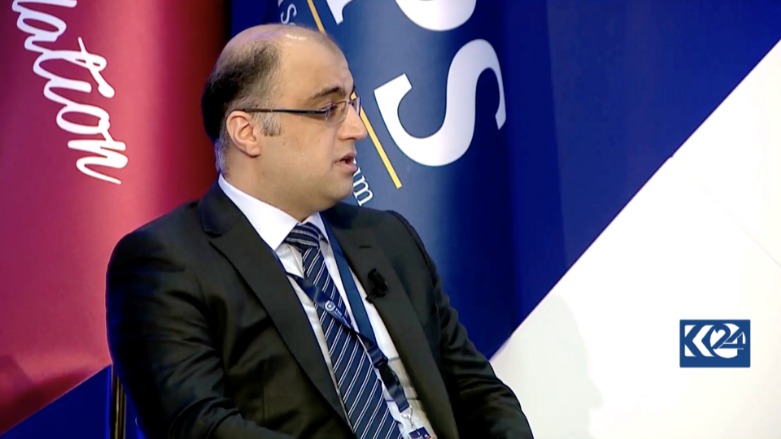Kurdistan Region invested $50 million on government digitalization over past 2 years: Official

ERBIL (Kurdistan 24) – As part of efforts to update its government to the digital age, the autonomous Kurdistan Region has invested $50 million in just the past two years alone, said a top official on Wednesday.
The remarks came from Aziz Ahmed, Deputy Chief of Staff to Prime Minister Masrour Barzani, during the Middle East Peace and Security Forum (MEPS21) held this week at the American University of Kurdistan (AUK) in Duhok.
Read More: Kurdistan Region PM addresses migrant crisis, regional politics, the economy, and climate change
Participating at a panel entitled “Prosperity in Kurdistan and Iraq: Governance in the Modern Era,” Mr. Ahmed shed light on the nature of an ongoing reform project carried out by the Kurdistan Regional Government’s (KRG) Ninth Cabinet, particularly regarding the financial sector.
Through the creation of a digital financial management system, the KRG is now able to closely monitor its public spending efficiently, the official said. Barzani’s administration has touted such reforms as key to countering corruption and waste.
Read More: Kurdistan Region PM announces initial results of economic reform
“We have invested in a digital program that tracks every Dinar that is spent in the KRG,” Mr. Ahmed said, hailing the move as one that is likely to make strategic spending decisions far more efficiently.
“The prime minister’s vision has been that the old system does not work,” due in part to the paper-based red tape that was leaving room for corruption, the official said.
The current cabinet, since its inauguration in July 2019, has invested the $50 million in a variety of ways, according to Ahmed, including a major contract with a German IT firm to lay the foundation of the new e-government.
Youth, Job Creation, Reform
In another part of the panel, the official hailed the “instrumental” role of young Kurdish graduates in the KRG’s reform program, particularly at the prime minister’s office.
“They have been instrumental in driving down the [operational] cost from what was about $2.5 billion to just above a billion dollars a year,” Ahmed said, adding the energetic graduates had been able to contribute significantly to the reform plan and the government in general.
At the top office, there are more female staff than males, explained the official, which he said demonstrated that hiring has been fully merit-based.
Regarding the KRG’s current approach to labor, Ahmed said, “Minimum wage has increased by 20 percent under this cabinet.”
The current administration has worked to simplify its company registration and regulation process in order to provide more job opportunities and allow young people to market their ideas.
Another sector that the KRG is keen to reform its electrical infrastructure in various ways, including encouraging further investment in the public grid, the official said, adding that the low-income households will receive government assistance regardless of other factors.
Editing by John J. Catherine
